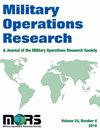q -学习是最优的吗?一个紧密的样本复杂性分析
IF 0.7
4区 管理学
Q3 Engineering
引用次数: 50
摘要
本文研究了一种在强化学习中广受关注的无模型算法,即Q-learning。尽管近年来在理解q学习的样本效率方面取得了实质性进展,但q学习是否是样本最优的以及如何提高q学习的样本复杂性分析在很大程度上仍然不清楚。在本文中,我们解决了这些问题:(1)当只有一个动作时,我们证明了q -学习(或等价的,TD学习)是可证明的极小极大最优的。(2)当至少存在两种行为时,我们的理论揭示了q学习的严格次优性,并强化了q学习中高估的负面影响。我们的理论适用于同步情况(即,绘制独立样本的情况)和异步情况(即,只有一个人可以访问单个马尔可夫轨迹的情况)。本文章由计算机程序翻译,如有差异,请以英文原文为准。
Is Q-Learning Minimax Optimal? A Tight Sample Complexity Analysis
This paper investigates a model-free algorithm of broad interest in reinforcement learning, namely, Q-learning. Whereas substantial progress had been made toward understanding the sample efficiency of Q-learning in recent years, it remained largely unclear whether Q-learning is sample-optimal and how to sharpen the sample complexity analysis of Q-learning. In this paper, we settle these questions: (1) When there is only a single action, we show that Q-learning (or, equivalently, TD learning) is provably minimax optimal. (2) When there are at least two actions, our theory unveils the strict suboptimality of Q-learning and rigorizes the negative impact of overestimation in Q-learning. Our theory accommodates both the synchronous case (i.e., the case in which independent samples are drawn) and the asynchronous case (i.e., the case in which one only has access to a single Markovian trajectory).
求助全文
通过发布文献求助,成功后即可免费获取论文全文。
去求助
来源期刊

Military Operations Research
管理科学-运筹学与管理科学
CiteScore
1.00
自引率
0.00%
发文量
0
审稿时长
>12 weeks
期刊介绍:
Military Operations Research is a peer-reviewed journal of high academic quality. The Journal publishes articles that describe operations research (OR) methodologies and theories used in key military and national security applications. Of particular interest are papers that present: Case studies showing innovative OR applications Apply OR to major policy issues Introduce interesting new problems areas Highlight education issues Document the history of military and national security OR.
 求助内容:
求助内容: 应助结果提醒方式:
应助结果提醒方式:


